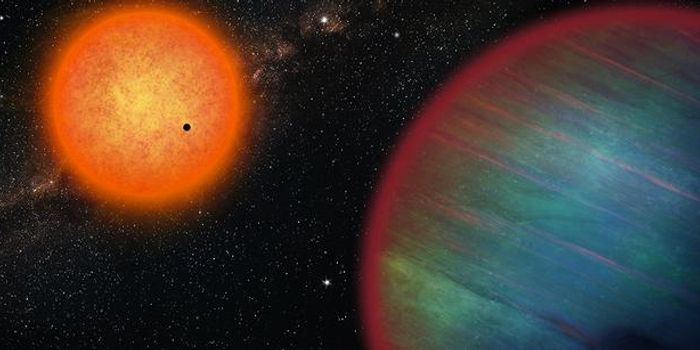Astronomers Look Into Jupiter's Clouds With a Radio Telescope
Jupiter has long been a mystery. We know it’s a massive gassy planet, but lots of astronomers believe that deep down in the clouds we’ll found a solid rocky core.
An upcoming mission dubbed Juno is expected to reach Jupiter in July so we can learn more about the massive gaseous planet, but astronomers have reportedly already started decoding Jupiter from right here on Earth with a radio telescope.
Peering through the planet’s cloudy surfaces, the astronomers note their findings in the journal Science.

Image Credit: AAAS/SCIENCE
Using the Very Large Array (VLA) radio telescope system on Earth, scientists were able to study the layers of Jupiter immediately under the initial surface of the planet’s atmosphere as deep as 100 kiliometers below the planet's initial atmospheric surface, something we couldn’t do until now. Among the things they found there were traces of ammonia.
"What really excites me is just the level of detail we see. In our maps you can see different zones, turbulent features, vortices - even the Great Red Spot,” University of California, Berkeley’s Michael Wong told the BBC in a statement. “This has all been made possible by an upgrade to the VLA and a new technique developed by one of our co-workers.”
The following video was pushed on the University's YouTube channel to show off the results:
By tracking the glow of ammonia from the images taken with the VLA system, scientists were able to gather information and predict models for the movement of the planet’s gasses and help to better understand its composition and environment.
Additionally, the team was even able to gather atmospheric pressures and temperatures with this model, providing even more detail than they've ever been able to accomplish with any Earth-based technology to date.
Despite the fact that NASA’s Juno spacecraft will be arriving at the planet this Independence Day (July 4th), we were able to get a preliminary view of Jupiter’s atmosphere with this radio telescope array prior to its arrival, giving us somewhat of an idea of what to expect so more time can be spent studying other things.
Source: BBC, Astronomy Now








